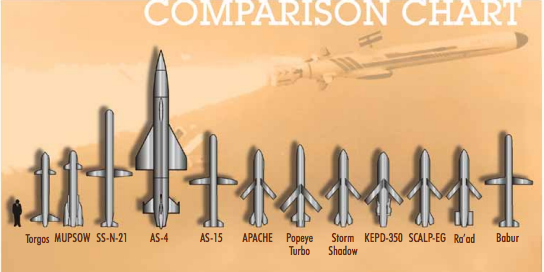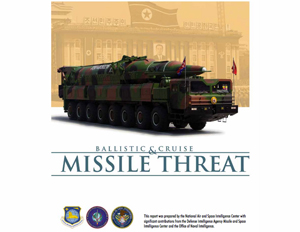
A list of cruise missiles published in the NASIC report.
College students can be flunked for cut-and-paste reports, think tankers can be embarrassed, Defense News staff writers can be fired, but not, apparently, members of the National Air and Space Intelligence Center (NASIC). Defense News reports.
Most of its so-called “updated” report, 2013 Ballistic and Cruise Missile Threat, which contains contributions from the Defense Intelligence Agency Missile and Space Intelligence Center and the Office of Naval Intelligence, was largely a cut-and-paste job from its 2009 report. Some of the material is identical to the 2006 and 1998 report.
Though it was reformatted and photographs rearranged with some being enlarged or decreased, the 2013 report appears verbatim from the 2009 report. This clever reordering and reformatting with new color schemes for boxes and graphs is embarrassing since there is more impressive data on Chinese missiles on Wikipedia.
The best illustration is the sections on Chinese missiles. Media reports have exclaimed that the new report indicated that China’s ballistic missile development program is the “most active and diverse” in the world.
“China has the most active and diverse ballistic missile development program in the world. It is developing and testing offensive missiles, forming additional missile units, qualitatively upgrading missile systems, and developing methods to counter ballistic missile defenses. The Chinese ballistic missile force is expanding in both size and types of missiles,” the 2013 report stated.
Actually, it is the exact same paragraph in the 2009 report and a paraphrase from the 2006 report.
There is a slight emphasis this year in anti-access/area-denial (A2/AD) missile systems such as the DF-21D (CSS-5) anti-ship ballistic missile, which is “specifically designed to prevent adversary military forces’ access to regional conflicts.” This is hardly new information and one wonders why it was left out in the 2009 report. Still interested? You can download the report here or directly from NASIC.
Read the rest of this article on Defense-News ‘Intercepts’ blog post By Wendell Minnick



0 komentar
Write Down Your Responses